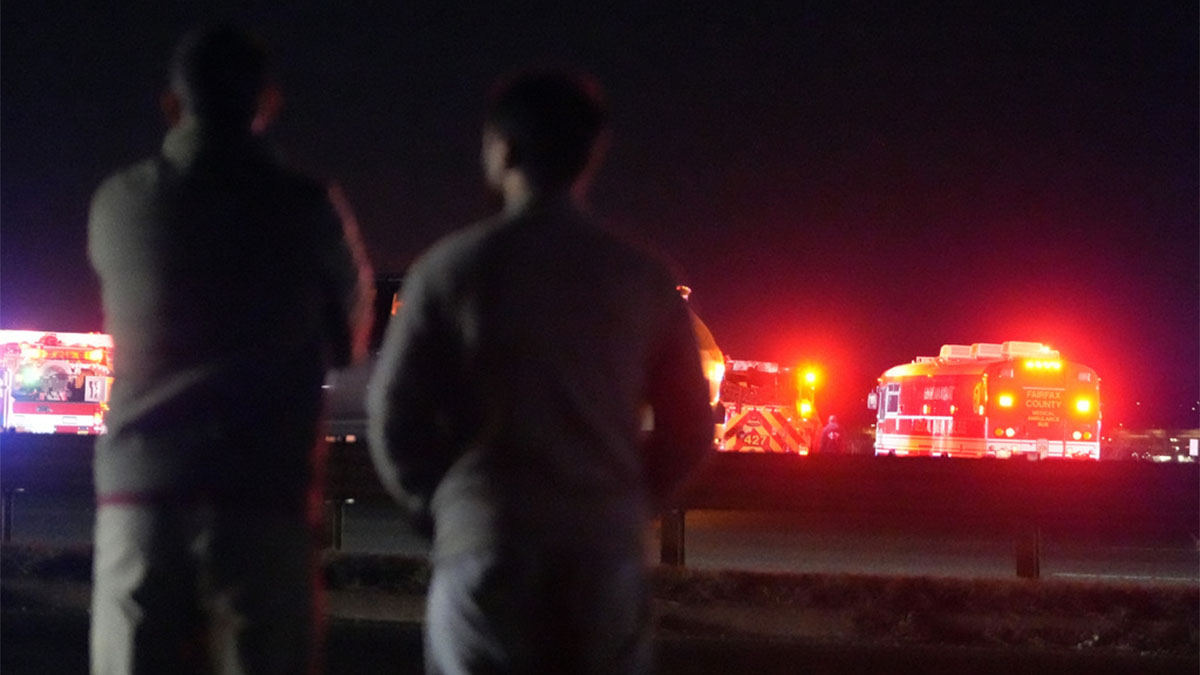A midair collision occurred Wednesday evening at Reagan National Airport in Arlington, Virginia, involving an Army Black Hawk helicopter and a PSA Airlines Bombardier CRJ700 regional jet. The Federal Aviation Administration confirmed the incident happened around 9 pm local time as the jet, Flight 5342 operated by PSA under American Airlines, was approaching Runway 33. The aircraft, which had departed from Wichita, Kansas, crashed near the Potomac River, close to the airport, with fireboats on the scene, according to ABC7.
NBC News reported that the airliner had about 60 people aboard, though the number aboard the helicopter is still unknown. At least four individuals have been recovered and rushed to hospitals. Authorities are conducting a frantic search for additional crash victims in the river. Storm Team4’s Doug Kammerer told NBC News that the water temperature is approximately 35°F, meaning survivors only have 15 to 20 minutes before potentially succumbing to hypothermia.
Footage from the EarthCam web camera network captured the moment of impact, showing a massive flash. The White House has confirmed that President Donald Trump has been briefed on the incident.
The Potomac River, which flows through Washington, D.C., has been the site of several aviation disasters, including the infamous 1982 crash of Air Florida Flight 90 and other military and civilian accidents.
Tragedy of Air Florida Flight 90
On January 13, 1982, Air Florida Flight 90 crashed during a snowstorm in Washington, D.C. The Boeing 737-222, bound for Fort Lauderdale, struggled with ice on its wings, compounded by errors during the de-icing process. After takeoff, the plane lost control, hitting the 14th Street Bridge, striking several vehicles, and plunging into the frozen Potomac River.
Impact Shorts
More ShortsSeventy-eight lives were lost, including four motorists. Five passengers survived by clinging to wreckage in the icy water, aided by a US Park Police helicopter and Lenny Skutnik, a brave bystander who jumped into the freezing river. One passenger, Arland D. Williams Jr., passed the rescue line to others but ultimately succumbed to the cold. A bridge was later named in his honour.
This tragedy led to stricter aircraft de-icing protocols and enhanced pilot training for winter conditions.
Eastern Air Lines Flight 537: A Mid-Air Catastrophe
The Potomac River was also the site of another devastating accident. On November 1, 1949, Eastern Air Lines Flight 537, a Douglas DC-4, collided midair with a P-38 Lightning fighter jet. The commercial plane crashed into the river, killing all 55 people on board, while the fighter pilot survived. Miscommunication between air traffic controllers and the fighter jet was the primary cause.
2006 F-14 Tomcat Crash
On June 27, 2006, a Grumman F-14 Tomcat crashed into the Potomac River during a training exercise. While the incident was non-fatal, it was dramatic. The two crew members ejected safely, and no casualties were reported. Engine failure was later determined to be the cause.
The ‘Miracle on the Hudson’
The sight of a plane in the river evokes memories of US Airways Flight 1549 on January 15, 2009. After striking a flock of Canada geese shortly after takeoff from LaGuardia Airport, both engines failed. Captain Chesley “Sully” Sullenberger and First Officer Jeff Skiles made an emergency water landing in the Hudson River. Remarkably, all 155 passengers and crew survived. The incident later inspired the 2016 film Sully, starring Tom Hanks.
Though no such miracles have occurred on the Potomac as of now, we can only hope for a future where such crashes are a thing of the past.
A lasting legacy of safety Improvements
While the Potomac river has witnessed a few aviation accidents, it has also been the site of extraordinary heroism and spurred vital safety reforms. Each crash has contributed to shaping modern aviation standards ensuring that lessons from the past continue to prevent similar disasters. Today, the memory of these events lives on—not just in history, but in the regulations that keep air travel safer for all.
)